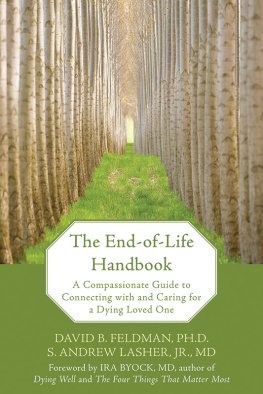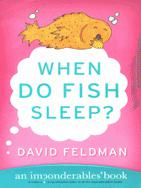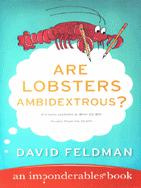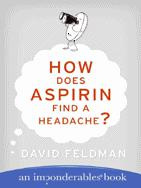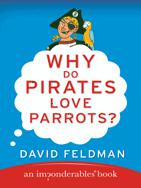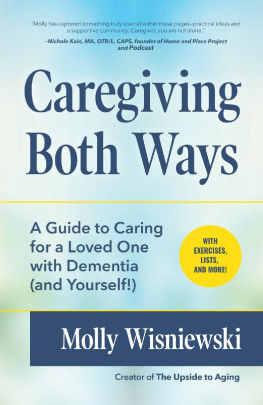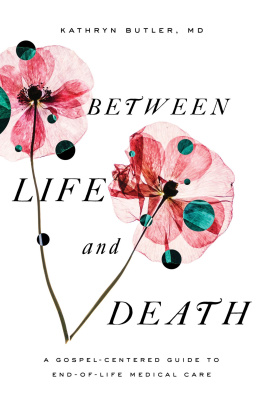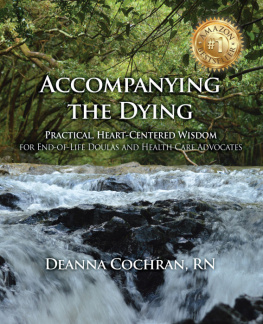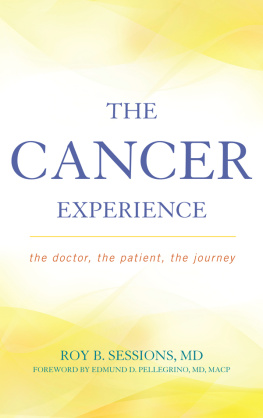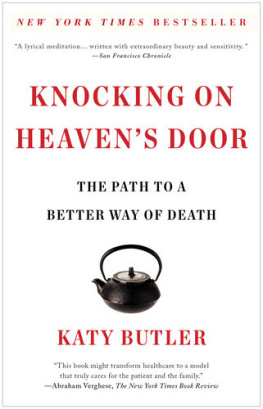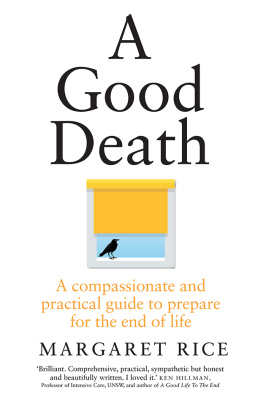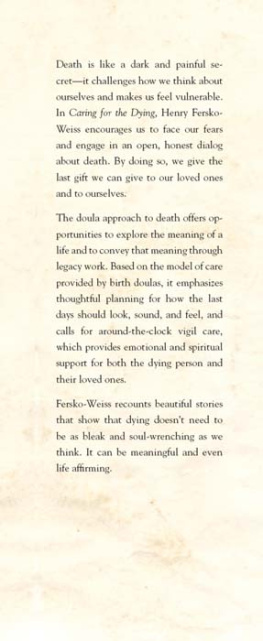Chapter 1
Could the Doctors Be Wrong?
Understanding and Coming to Terms with Bad News
Charlie had done everything right. He worked hard in school, excelled in college, and built his own accounting business from the ground up. He and his wife Evelyn had raised two fine boys, both Eagle Scouts. Kevin, his oldest, had just started his first year of college, and Bryan was entering his sophomore year of high school. Both played basketball and actively volunteered at church. With his sons encouragement, Charlie had become a vegetarian. He worked out routinely and even had lost twenty-five pounds two years ago, and more weight recently. At forty-six years old, everything seemed to be going well. Except now his doctor was sitting in front of him, speaking earnestly and from her heart: Charlie had cancer, and it didnt look good at all.
Weve received the results back from Mondays biopsy, said Dr. Horta. It confirmed a poorly differentiated adenocarcinoma. Were not sure where in the body it came from, but well need to start chemotherapy right away.
Charlie wasnt prepared to hear anything like this. Barely a week ago, hed been obsessing over changes in the tax code. Hed assumed his ulcer was acting up again, causing the discomfort that sent him to the doctor. What was an adenocarcinoma? What about it was poor? And what did differentiated mean? He was thankful that his wife, Evelyn, was with him so she could ask these questions.
Can chemotherapy get rid of it? she asked.
Its pretty severe. Although Im hopeful we can force things into remission, I think you need to prepare for the worst, said Dr. Horta. Im planning on admitting you to the hospital this afternoon, and we may even start chemotherapy tonight. We may also need to get another scan done.
Has the cancer spread anywhere else? asked Evelyn. Is that what youre looking for?
Dr. Horta paused and took a deep breath before she spoke. The first scan showed a spot in the liver and another on one of Charlies adrenal glands. But we didnt focus on those areas specifically, so Im not sure what they are. Also, the back pain Charlies been having may be from the tumor itself, so well want to do a bone scan to make sure it hasnt spread to the spine.
Evelyn stifled a cry and swallowed. Charlie had lost himself in discouraging thoughts. What if it has spread to my liver? What if theres cancer in my spine? Is this something that could... The questions in his mind trailed off.
Im going to beat this thing, said Charlie, emerging from a daze. Im going to beat this. Whenever weve had problems, weve gotten through them on faith. I believe in God and I am going to beat this thing.
Dr. Horta nodded her head, but her gaze didnt match her gesture. Its great to be thinking that way. Its going to be a tough few weeks, and positive thinking will help. Once we get you admitted, our infusion nurse will discuss the specifics of chemotherapy and get your consent. Charlie, why dont you start on the paperwork now?
Charlie got up slowly and ambled toward the front desk. Evelyn couldnt believe how sick he looked. How had she missed it? When Charlie lost ten pounds, she just figured he was exercising more and staying away from donuts. As Charlie left the room, Evelyn and Dr. Horta stayed seated.
Dr. Horta, said Evelyn, I know things look bad. But Charlie and I have faith and we both believe in miracles. Just do everything you can.
Hoping for Miracles
In our darkest moments, we all fear being in Charlies situation: sitting in front of a doctor and hearing the crushing details of a life-threatening illness. As we age, we hear more of these horrible storiesthe wife of a colleague from work, a former college roommate, a close friends father. Sometimes members of our own families are the ones sitting in front of doctors, lying in hospital beds, awaiting biopsy results, receiving bad news, and hoping for miracles. Because youre reading this book, its likely that you also bear the burden of bad news and may be hoping the doctors are mistaken about your loved ones future.
We read about miracles all the time. People return from the brink of death, reporting a bright white light or a welcoming relative. Patients whom physicians have declared terminally ill sometimes recover to outlive the grimmest prognoses. These stories inspire patients and families to maintain hope, and they motivate health care professionals to work even harder. We all recognize, however, that we are mortal and that modern medicine, miraculous though it seems, has limits. We also know that because of medicines advances, fewer of us will die suddenly from a heart attack or stroke than in past decades. More of usour parents, our siblings, our friends, ourselveswill, like Charlie and his wife, be forced to interpret bad news about a slowly progressing condition.
Patients and families have a wide range of normal reactions to hearing bad news. Some want to know as much as possible about the future. Others may prefer to remain in the present, deferring or avoiding any discussion about prognosis. Good physicians respect peoples feelings, inquiring about what information they desire to know and at what pace. Most doctors recognize a certain amount of ambivalence in these patients: the need for hope paired with the desire to understand their disease and its timing. As you and your loved one face this situation, we recommend adopting the attitude hope for the best and plan for everything. This book is dedicated to providing information and advice for doing just that.
Getting All the Information
When informed of a loved ones serious illness, you may wish to find out more information from the doctor. Unfortunately, doctors dont always communicate with patients and families as effectively as possible (and vice versa). This can occur for lots of reasons. Sometimes the fault lies with doctors: They may use overly technical jargon or fail to spend sufficient time answering questions. On the other hand, sometimes patients and family members cant think of the right questions to ask, or they may feel so intimidated by the whole process that they remain quiet. If youve experienced any of these situations, you know how frustrating they can be. Nonetheless, its usually worth making another effort to communicate effectively with your loved ones physician. In the next chapter, well offer detailed advice about how to maximize your time with the doctor. For now, wed like to offer some pointers to help you through the first few conversations:
- Be on time. If the appointment feels rushed, consider politely asking for more time or a second appointment.
- Be assertive, rather than angry or threatening. Remember that physicians are people too, fraught with the same insecurities and emotions as everyone else. Though its trite, its also true: You can usually catch more bees with honey than with vinegar.
- Ask the physician to summarize the medical situation prior to beginning a dialogue. This will help clarify any misunderstandings or disagreements before decision making begins.
- If you dont understand the terms a physician uses, politely request clarification. Ask for information in laymans terms rather than medical jargon.
- If you feel you arent getting a straightforward answer, this may be more a reflection of the doctors own uncertainty rather than any disregard for you. To put the doctor at ease, use statements like Its okay if youre not sure or Im sure its hard to say, but... Then continue to ask for as precise an answer as possible.
- Finally, feel free to sleep on it. Although some medical decisions must be made right away, most can be held off for a few days while you take time to process your feelings. Waiting may enable you to ask better questions, carefully consider the important information you receive, and ultimately make better decisions.
Next page
